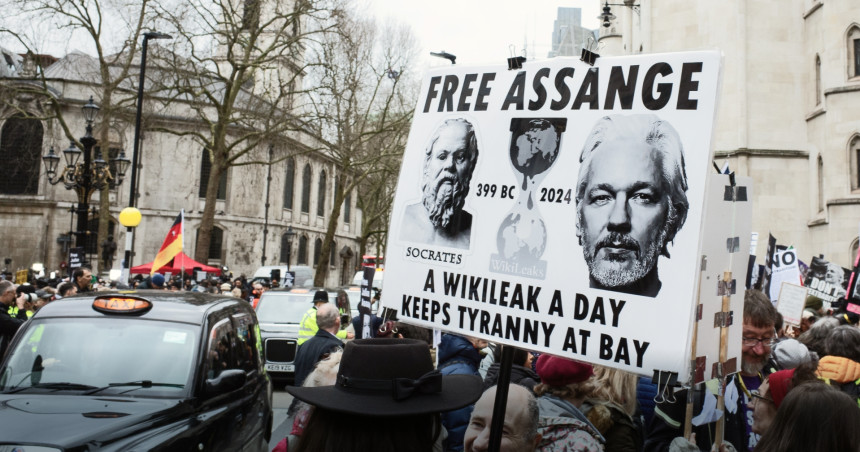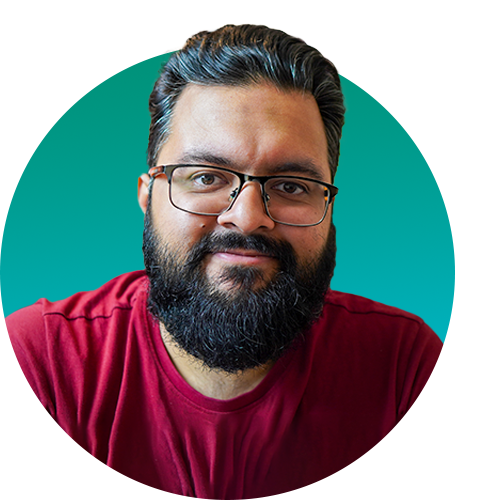On Monday, WikiLeaks founder Julian Assange was released from the maximum security prison Belmarsh, after languishing behind bars for the past five years, whilst fighting American extradition on charges of espionage. [1]
It was reported on Tuesday morning that Assange, 52, had been released from HMP Belmarsh — one of the UK’s toughest prisons that often houses those suspected of crimes relating to national security — and had boarded a chartered flight from Stansted to the US Territory of Saipan. [1]
On arrival in Saipan, he is expected to plead guilty to one count of espionage — more specifically, “conspiring to unlawfully obtain and disseminate classified national defence information” — in a plea deal that is likely to result in Assange walking free following the hearing, on account of the five years already spent at Belmarsh. [2]
The Australian Prime Minister, Anthony Albanese, said of Assange’s imminent freedom,
“Regardless of the views that people have about Julian Assange and his activities, the case has dragged on for too long, there is nothing to be gained by his continued incarceration and we want him brought home to Australia.” [1]
Freedom after decade of political wrangling
Assange, the founder and former Editor-in-Chief of 2006-established WikiLeaks, had until Monday been fighting against persistent US efforts to extradite him.
American officials had long alleged that he violated espionage law during the release of sensitive (and incriminatory) pieces of footage or documents relating to the US military invasion of Iraq, thousands of US diplomatic cables, as well as logs from the country’s invasion and occupation of both Afghanistan and Iraq. [3] [4] [5]
The Brussels-based International Federation of Journalists (IFJ) — the world’s largest organisation of journalists — said in a statement following Assange’s release,
“The dropping of 17 of the 18 charges that he faced avoids the criminalisation of the normal journalistic practices of encouraging sources to confidentially share evidence of wrongdoing and criminality.” [6]
In addition, IFJ General Secretary Anthony Bellanger said,
“The attempted prosecution of Julian Assange cast a dark shadow over journalists, particularly those who cover national security issues.
“Had Assange gone to prison for the rest of his life, any reporter handed a classified document would fear facing a similar fate.” [6]
Likewise, the General Secretary of the UK’s National Union of Journalists (NUJ), Michelle Stanistreet, said of the news,
“The targeting and persecution of journalists in this way is one that underscores the need to defend journalism and the methods used daily, including when cultivating a source.
“Collectively, we must do all that is necessary to protect press freedom and continue to resist efforts threatening the safety of journalists.
“As the NUJ continues to monitor developments, I hope this juncture leads to a more concrete end to the nightmare experienced by Assange.” [6]
WikiLeaks catapulted into the limelight
In April 2010, the veteran journalist started a chain reaction when WikiLeaks released helicopter gun footage from a 12 July 2007 US airstrike. [7]
In the reprehensible incident, 18 Iraqi civilians were shot and killed, while some of the military voices on the tape were heard laughing after the fact. [7]
Among those murdered were the Reuters journalist Namir Noor-Eldeen and his assistant, Saeed Chmagh. [8]
International condemnation and accurate descriptions of the case being a war crime were deeply humiliating for the US. At the same time, an anonymous official confirmed the authenticity of the video and audio. [8]
A long road to have reached this far
Many remain sceptical about the latest result for the activist, editor, and publisher.
In January 2021, a British judge rejected the US request to extradite Assange on account of it likely harming his mental health. [9]
The following June, the government ordered his extradition, only to be met by a last-ditch appeal at the High Court in February 2024. [9]
In May of this year, the High Court ruled that Assange could bring forth a new appeal against American extradition, and he accepted a plea deal with the US on 19 June. The High Court subsequently granted him bail. [9]
His wife, Stella, shared an optimistic post on the platform X in the early hours of Tuesday.
“Words cannot express our immense gratitude to you — yes you, who have all mobilised for years and years to make this come true. Thank you. Thank you. Thank you.” [10]
And WikiLeaks has also responded in a cautiously-worded statement, noting,
“This is the result of a global campaign that spanned grass-roots organisers, press freedom campaigners, legislators, and leaders from across the political spectrum, all the way to the United Nations.
“This created the space for a long period of negotiations with the US Department of Justice, leading to a deal that has not yet been formally finalised. We will provide more information as soon as possible.
“After more than five years in a 2×3 metre cell, isolated 23 hours a day, he will soon reunite with his wife Stella Assange, and their children, who have only known their father from behind bars.” [11]
Analysis
ANALYSIS
He committed a grave act!
Julian Assange had been imprisoned for years for committing the grave act of journalism.
He did a public service by uncovering the rotten insides of US imperialism that have destroyed human societies, both outside and in America.
In so doing, he displayed the age-old warning that anti-colonial thinkers have taught us for more than a century: when modern empire hones its repressive tools on 'the wretched of the Earth' — subjects of colour in the 'Third World' — it’s only a matter of time before those tools are pointed inwards to citizens in the motherland.
It is a cycle of self-destruction meted out to those who fail to challenge their oppressive regimes when the victims are far away; a reminder of the universal law of Allah:
وَمَا كَانَ رَبُّكَ لِيُهْلِكَ الْقُرَىٰ بِظُلْمٍ وَأَهْلُهَا مُصْلِحُونَ
'And your Lord would not have destroyed the cities unjustly while their people were reformers.'
Duty in the struggle, not the outcome
The glimmer of hope for our societies here in the West is that there has always been a vocal group of people standing up against the most industrialised levels of oppression our ruling classes have inflicted on humans, societies, animals, resources, and the future habitability of the planet itself.
Assange’s victory at the end of such a long struggle should remind us that the arc of justice may be long, but it always bends in the right direction — our duty is in the struggle, not the outcome.
Also read
- Why Western governments hate Julian Assange
- Silencing of Whistleblowers — Welcome to the Orwellian state
- US edges perilously close to securing extradition of Julian Assange
Source: Islam21c
Notes
[3] https://www.wikileaks.org/Cablegate-250-000-US-Embassy.html
[4] https://wikileaks.org/10years/afghanistan.html
[5] https://wikileaks.org/irq/
[6] https://www.nytimes.com/2010/04/06/world/middleeast/06baghdad.html
[8] https://www.reuters.com/article/idUSTRE6344FW20100406/
[9] https://www.bbc.co.uk/news/world-europe-11949341
[10] https://x.com/Stella_Assange/status/1805393089819033890
[11] https://x.com/wikileaks/status/1805390138945528183
[12] al-Qur’ān, 11:117










